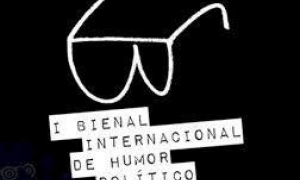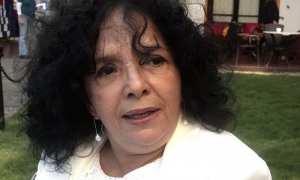
My essay "Whales and sharks" (www.granma.cu/en) was repudiated by our enemies, or rather, by the employees of our enemies. Nonetheless, I didn't see any serious attempt to refute it, only insults and dismissive vulgarity, the usual. The only charge of any weight attempted to ridicule the very act of talking about "shark movies" in a country with so many economic difficulties.
Those who dream of capitalist restoration are not interested in debating the cultural war. They hope our people accept as their own the patterns and attractions of the "machine," that they happily submerge themselves in the limbo of frivolity and see this process as "entertaining." In short, that they distance themselves from the path charted by José Martí and Fidel of achieving freedom through authentic culture.
During the recent Congress of the Union of Cuban Writers and Artists (UNEAC) a document was presented that asserted, "The battle of our time is eminently cultural, between hegemonic imposition and liberatory paradigms, between foolishness and freedom."
Graziella Pogolotti referred to the need to contribute "to enriching decolonizing leftist thought," based on the Cuban experience.
Writers Victor Fowler and Alberto Marrero addressed attempts to absorb us spiritually. The first explained that the "machine" plants, within the majority, the idea that we are lesser beings. The second recalled the plans CIA director Allen Dulles had for the USSR. "Before the aircraft carriers and missiles," he said, we must send in our "universal, glamourous, modern" symbols, to ensure that "the victims share the executioner's logic."
In his closing remarks, Díaz-Canel quoted Raúl's message to UNEAC on its 55th anniversary: "Today we are doubly threatened in the cultural field: by subversion programs meant to divide us and by the global colonizing wave." And Díaz-Canel added: "This colonizing platform promotes more neocolonial paradigms... careful to put the market first, not culture: self-interest and personal vanity, not the social commitment of culture."
The annexionist crowd's bark is resounding; they are unhappy with the contributions of revolutionary cultural thought made during an event of Cuba's intellectual vanguard. It's intolerable to them that we should gain ground in the development of a clear, penetrating, redeeming point of view.
"They bark, Sancho, a sign that we are galloping," is a phrase often erroneously attributed to Quixote. It appears, without the reference to Sancho, of course, in a poem by Goethe; and some suggest that the author of Faust took it from an ancient Turkish proverb. Be Goethe the original author, or a remote, anonymous Turk, it works perfectly to describe the reaction of the discontents.
In the 1990s, in the UNEAC of those times, we referred to "daytime anti-imperialists" during working hours, who quickly became nighttime pro-imperialists, relaxing in the evening with the most infamous Yankee movies. They suffered an illness similar to what psychiatrists call "dissociative identity." Note that we're talking about adults. And the "dissociative" coexistence of anti-imperialist politics and cultural colonialism can appear, in some way, in any generation.
Developing intransigent anti-imperialism supposes deep anti-colonialism. To advance this complex mission, we must discard any vertical, paternalistic temptation, or the establishment of any supposed tribunal, as the source of all truth. We must continue promoting debates and workshops, so that, among all, the critical capacity emerges to detect, within an apparently harmless show or story, any trace of racism, disrespect for immigrants, a classist or patriarchal vision of society, manipulative, propagandistic intentions, or the U.S. mission as the world's arrogant policeman.
This is about a collective effort, based on respect and dialogue, far removed from slogans or prohibitions, that revives the pleasure of exercising our intelligence and combining perceptive analysis of the machine's tricks with the enjoyment of entertaining, genuine works of art - yes, passionately, decidedly entertaining.
Teachers, students, art instructors, media producers, cultural promoters, creators, are all protagonists on this liberatory front that Cuba must continue defending without rest.






